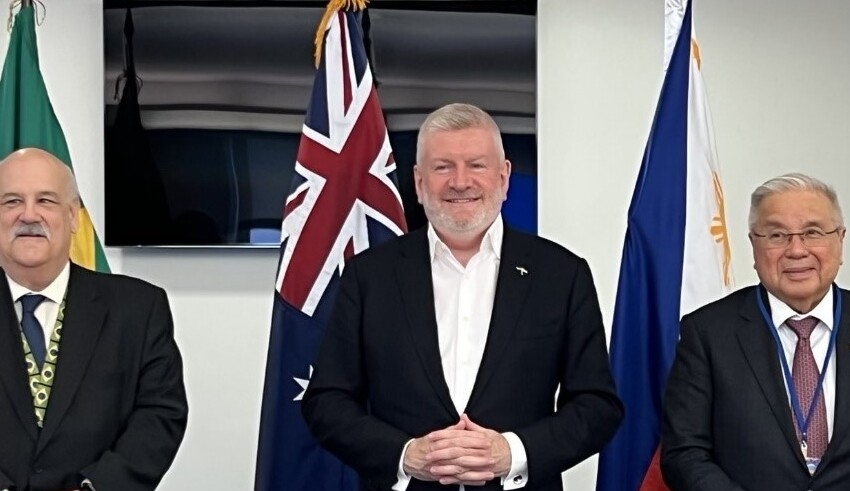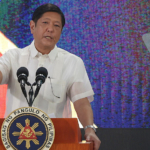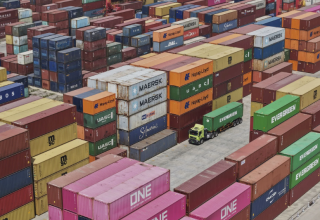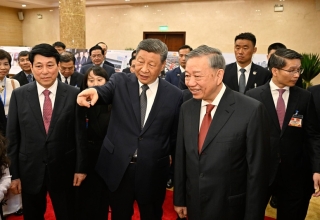
Forty years after the United Nations Convention on the Law of the Sea (UNCLOS) was formed, the Department of Foreign Affairs (DFA) commemorated the convention’s role in establishing the marine rights of coastal governments, such as the Philippines.
The 2016 Hague judgement that invalidated China’s sweeping claim to the West Philippine Sea was based on the UNCLOS, popularly known as the “constitution of the seas.”
Foreign Secretary Enrique Manalo said at a conference of the DFA’s Maritime and Ocean and Affairs Office (MOAO) at the Diamond Hotel, “I hope that our unwavering commitment to promoting a rules-based international order will strengthen our resolve to ensure that UNCLOS remains the cornerstone of maritime governance for decades to come.”
DFA Undersecretary Carlos Sorreta provided a philosophical and political viewpoint on the archipelagic ideology to set the tone for the meeting. Ambassadors Lauro Baja Jr. and Victor Garcia III, both UNCLOS III delegates, assembled a panel alongside Sorreta to discuss their perspectives on the convention’s talks and signing.
Angela Ponce, assistant secretary of the MOAO and conference organizer, presented a brief presentation on the Philippines’ Baselines Law. She also detailed what the Department of Foreign Affairs has been working to ensure that Philippine laws are comply with UNCLOS.
Claims that overlap are not unique to the West Philippine Sea; they are actually rather prevalent. In truth, the Philippines has marine boundaries with Japan, Palau, and Indonesia, among others.
Ponce spoke on the successful delineation of the exclusive economic zones of the United States and Indonesia after more than two decades of talks with Indonesia based on the UNCLOS.
Keep Reading
“We are always quite proud of it — the delimitation was accomplished through rules-based and cordial talks. This is the paradigm for future discussions, not just for us but also for other states,” Ponce stated.
Efren Carandang, Deputy Administrator of the National Mapping and Resource Information Authority (NAMRIA), participated on the panel with Ponce and UP Law Associate Professor Jay Batongbacal. Recently, Carandang was appointed to the United Nations (UN) Commission on the Limits of the Continental Shelf (CLCS). He will occupy the aforementioned position from 2023 until 2028.
They also reviewed the future actions for defending the archipelagic area of the nation. Batongbacal opined that the application for the expanded continental shelf, which has already been created in the Philippine Rise, is just the start of many processes. The Philippines must also seek for acknowledgment of its expanded continental shelf in the West Philippine Sea, he noted, notwithstanding the presence of the Philippine Rise along its eastern coast.
Henry Bensurto, a member of the team that challenged China to court over the West Philippine Sea issue, recounted the circumstances leading up to the filing of the lawsuit, the trial itself, and the 2016 reaction to the verdict.
We have gained a great deal from UNCLOS. It has assisted us. Bensurto stated, “I believe it is time for us to pay back, and the arbitration ruling is our way of giving back to world and regional peace.”
Senior State Counsel Fretti Ganchoon, a member of the legal team against China, explained that the verdict is binding even if China did not participate in the proceedings. Once a party ratifies the UNCLOS, Article 287 requires them to identify their preferred dispute process. If they do not, it is assumed that they consent to arbitration.
“Article 286 permits unilateral arbitration start. There is already agreement,” stated Ganchoon. “Thus, it was only necessary to commence arbitration proceedings. And it is also abundantly obvious that a party’s non-participation is not a bar to the proceedings.”
Domingo Nolasco of the Office of Treaties and Legal Affairs of the Department of State’s Office of Foreign Affairs led the previous session on maritime scientific research, including its significance and the challenges the nation faces in advancing its knowledge of its own waters and what lies beneath.
The Department of Foreign Affairs and PhilPost also issued a commemorative stamp depicting the Philippine delegation, led by Senator Arturo M. Tolentino, at one of the sessions of the Third United Nations Conference on the Law of the Sea. At the commencement of the conference, Manalo and Philippine Assistant Postmaster General Francis T. Cereno revealed it.



























